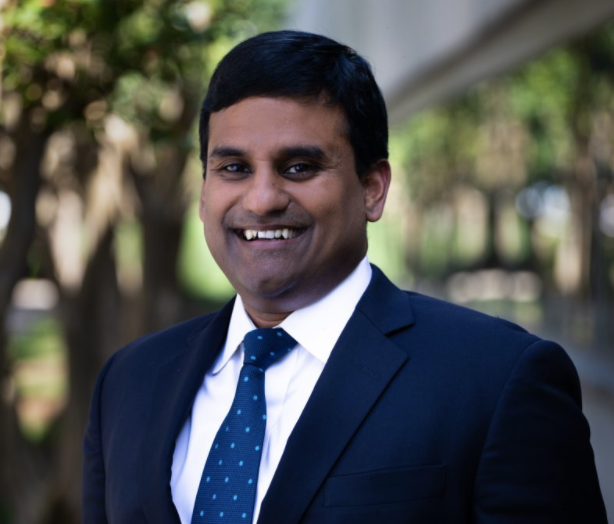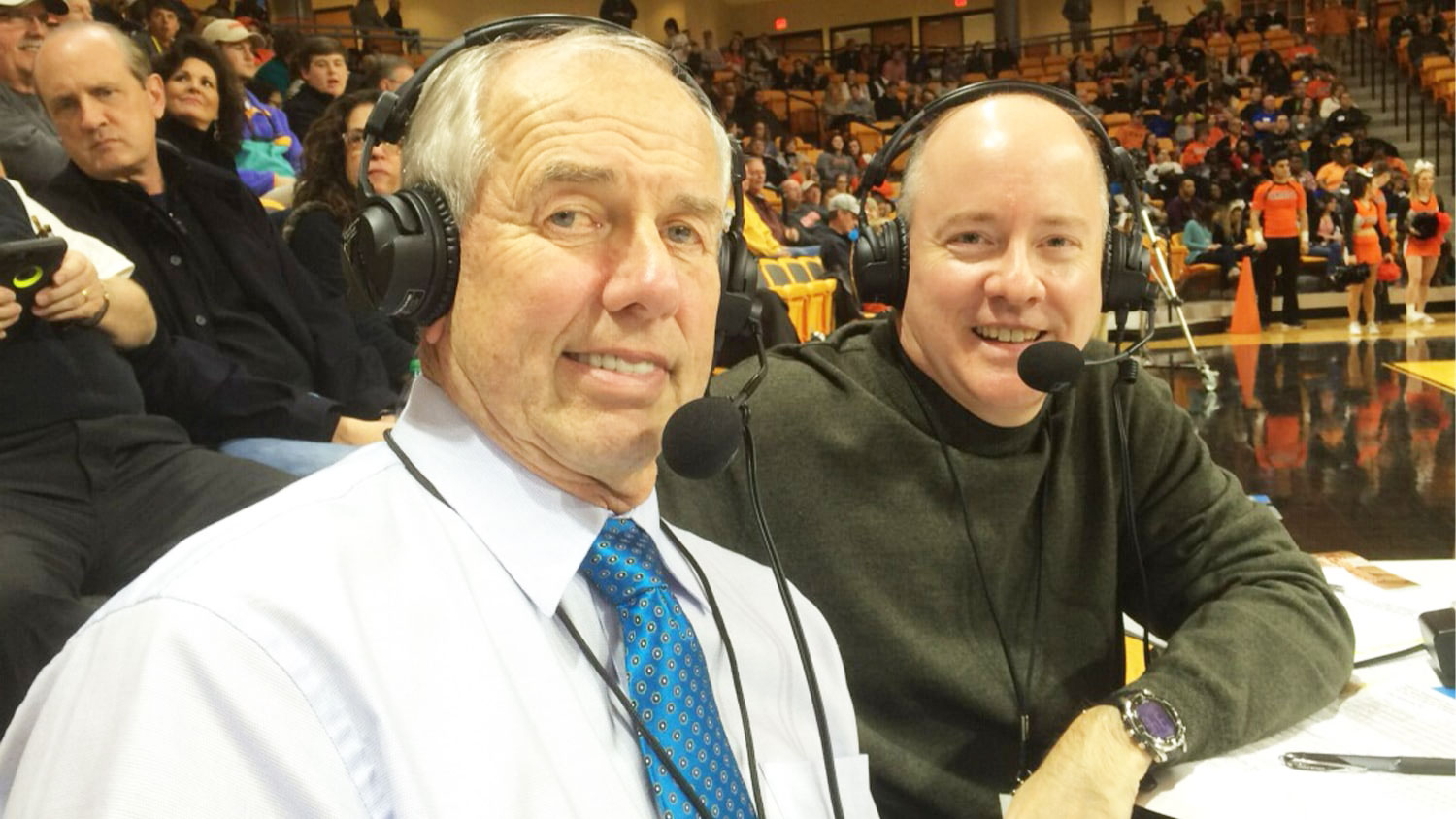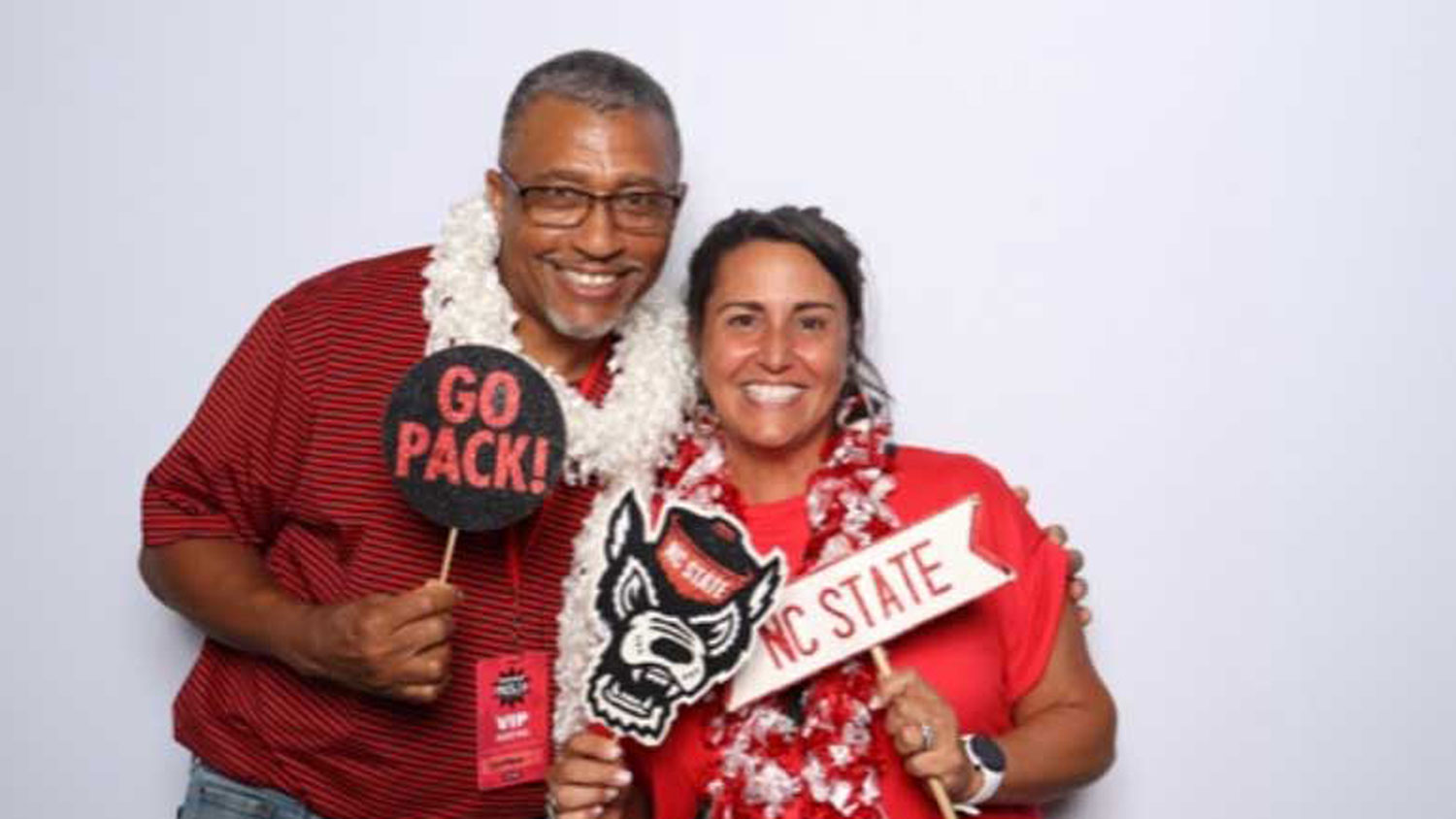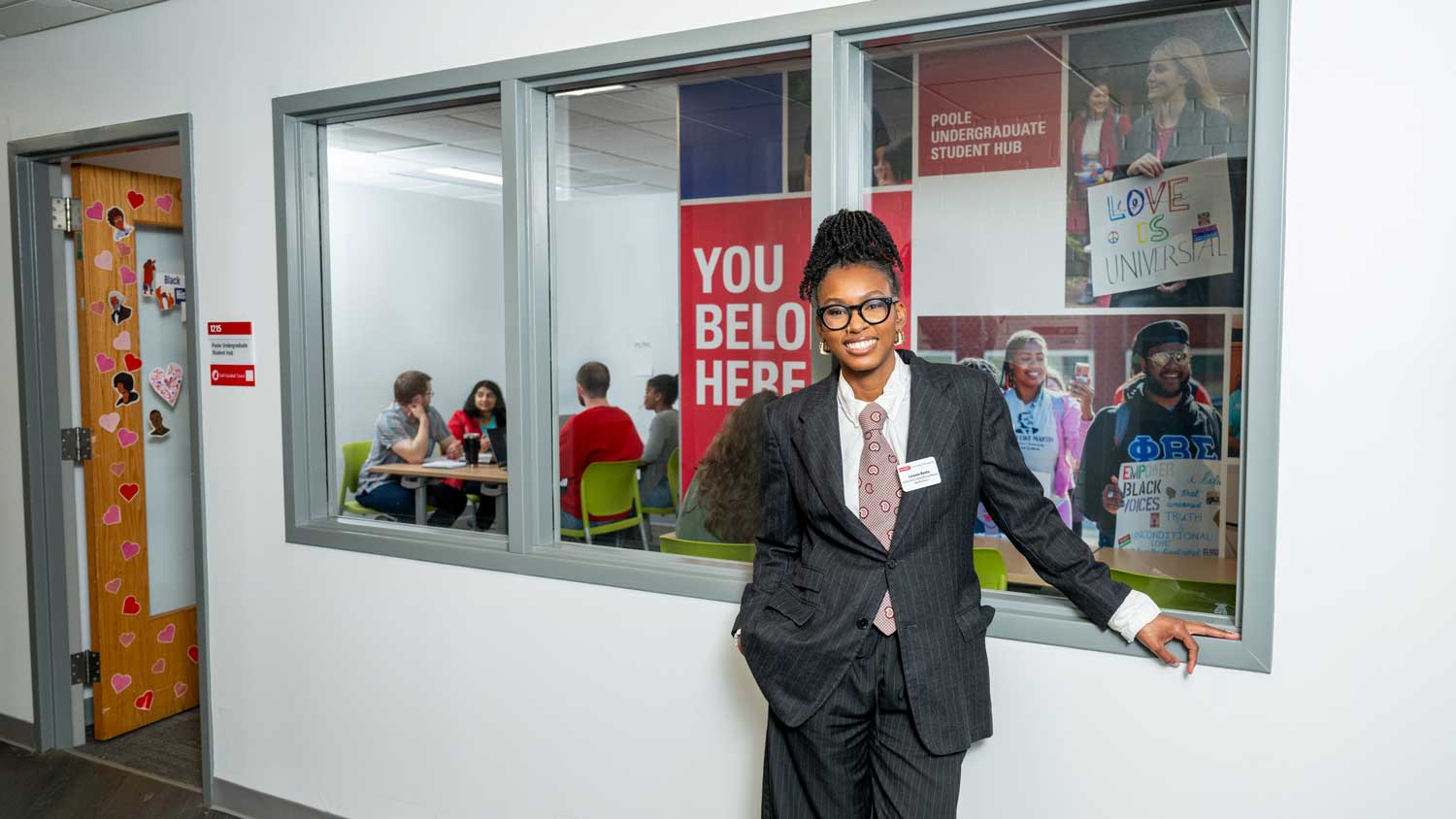
An Advocate for Those with Disabilities in the Workforce
As a student working toward his undergraduate degree in accounting from Poole College of Management, John Samuel hid the fact that he was losing his sight -- he’d done it before and did so for a long time after. But today, he proudly tells his story and serves as an advocate for people with disabilities.
By Lea Hart
Diagnosed with Retinitis Pigmentosa as a teen, Samuel lost his sight gradually over time, and said he initially didn’t make the connection that he was losing his sight.
“I thought I wasn’t getting things the way other people were,” Samuel said. “I thought I was a bad driver, or I just didn’t play basketball as well as everyone else.”
“It translated to my grades as well.”
Hiding his Diagnosis
As he was graduating high school, Samuel’s parents were leaving his home in Cary, North Carolina for an overseas work assignment, and he chose to attend Virginia Commonwealth University to be near his sister, who attended school in Virginia. It was during his freshman year that the official Retinitis Pigmentosa diagnosis came.
“When I was diagnosed, I didn’t really have anyone I could talk to about it,” he said. “I was embarrassed about it – being 18 or 19, I couldn’t really handle it myself.”
His grades suffered, and he felt uncomfortable talking to professors about it. It finally led to an academic suspension at VCU.
Samuel moved back to North Carolina and got creative. He moved in with friends from high school, and figured out he could register for seven credits at a time as part of NC State’s lifelong education program. He did that each semester, and each summer semester, and managed to accrue 28 credits within a year.
But he continued to hide his diagnosis. He didn’t tell the university he’d been academically suspended and didn’t talk to his professors about his disability. He took enough lifelong education credits to get admitted to the accounting program at Poole College of Management, and graduated in 2005.
Samuel said the Wachovia Lecture Series made an impact on him. He regularly attended as business and industry leaders shared their experiences, saying he’s always been fascinated by other people’s journeys in leadership.
He’s kept up with the college since graduating, and said he’s been impressed to watch the college move up through the rankings over the years.
“Their growth has been phenomenal, and something that should make any alumnus proud,” Samuel said.
By the time he graduated, Samuel’s sight had gotten to a point where he could no longer drive. The son of Indian immigrants who had settled in the United States more than 50 years earlier, he knew if he went to India, he could have a driver. So he secured a job at the treasury desk of an IT software company and moved to India, still continuing to hide his increasing sight loss.
Samuel returned to the U.S. after two years in India, and settled in New York City to allow access to public transportation. He worked for the New York Mayor’s office, and by this point, was telling close colleagues about his diagnosis but still not widely sharing the information.
It was there that he reconnected with a colleague he’d met in India, and was offered an opportunity to develop a cell phone tower engineering, procurement, and construction company in Cameroon in Africa. They knew he had a visual impairment, but not the extent of it, Samuel said. When they figured it out, he said they gave him six months to prove himself. He took that opportunity, starting with just $20,000 in funding, and generated $2.4 million in profit.
“I built the company around the values of what I thought a leader was supposed to be, and looked for people who were trustworthy and accountable to employ,” he said.
A New Ally Changes his Perspective
Samuel had always dreamed of earning his MBA, and returned to the U.S. applying to schools in Washington, D.C. and New York City for access to public transportation.
It was then he met George Washington University Associate Dean, Liesl Riddle, who took an interest in Samuel because of his work in Africa – she was working on diaspora investments in Africa.
“It was huge for me, she wanted me to come visit the campus,” Samuel recalled. “I met with her graduate assistants – it was just a really cool experience.”
Riddle had a son with special needs and became an ally, mentor and friend to Samuel.
“She empowered me and encouraged me to be open to my classmates,” he said. “I was able to be my authentic self – I opened up to my friends, and I met my wife in the MBA program.”
Riddle introduced him to student services on campus, and he learned for the first time that he could ask for accommodations because of his disability.
Thanks to Riddle, he was able to secure a job with a crowdfunding platform after graduation, helping people in Africa raise money for their startups. He worked from home in D.C., and didn’t have to worry about transportation. But when funding dried up, Samuel found himself without a job.
“We’d just had our first baby and had built a house,” he said. “All of the stress made me lose my vision faster, and I was depressed.”
“Coming out of the Closet as a Blind Person”
Then something happened that could have been fate. He had heard about Ed Summers, who lived back in Cary, and was designing software to help blind people visualize graphs and charts using sounds. Summers had the same condition as Samuel, and though he’d tried reaching Summers through email and LinkedIn, Samuel hadn’t had any luck.
He was on the phone with his dad, who was back in Cary, when his dad saw a blind man crossing the road. With a laugh, Samuel tells the story of how his father got out of the car and asked that man if, by chance, he was Ed Summers – and it was.
Through that exchange, Samuel was able to connect and traveled to Cary to meet Summers, where he said a 30-minute meeting turned into a three-hour conversation.
“He was a decade older than me, and understood where I was in my vision loss,” Samuel said. “He could empathize like no one else could.”
Summers introduced Samuel to LCI, a manufacturing, distribution, wholesale, retail, and technology services provider, and one of the largest employers of Americans who are blind or visually impaired.
Though he didn’t go to work for LCI immediately, Samuel kept in touch with Summers, and in 2017 he joined LCI, working to start a new business focused on technology services, which became LCI Tech.
Today, Samuel serves as Chief Innovation Architect at LCI Tech, where he and his team focus on helping organizations become more inclusive by making digital content accessible for people of all abilities.
LCI Tech now provides digital accessibility testing, training, and monitoring services for corporate, non-profit, and government organizations enabling digital inclusion for people with disabilities.
Today, Samuel serves as Chief Innovation Architect at LCI Tech, where he and his team focus on helping organizations become more inclusive by making digital content accessible for people of all abilities.
“For me, coming to LCI was like coming out of the closet as a blind person,” Samuel said. “All the things I was so worried about are all gone – those challenges and those barriers.”
He’s currently linking his experience back to Poole College, working with the executive education team to provide a training session on unconscious bias.
“I’m super excited to be working with the school to offer this training, as part of an effort to highlight diversity and inclusion in executive training,” he said.
He hopes his work at LCI will mean the same and more to others with disabilities.
“All the things we’ve been trying to do are to remove barriers,” he said. “So they can get the education, get the jobs and have an upward mobility track.”
- Categories:


